Bashir Trial Opens as Sudan Sovereign Council Delayed
Bashir faces charges of war crimes, crimes against humanity and genocide at the ICC for his role in the war in Darfur, where a rebellion erupted
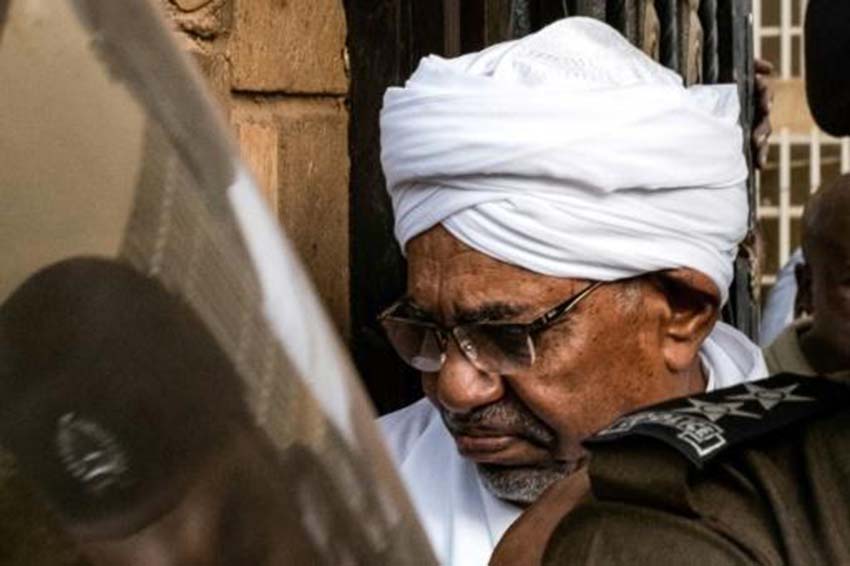
Photo Credit : AFP
Khartoum - Sudan's deposed military leader Omar al-Bashir, who ruled the country for 30 years, arrived in court Monday in Khartoum for the start of his trial on corruption charges.
The trial comes as a sovereign council was being formed, following Saturday's signing of a transitional constitution by protest leaders and the generals who took over after Bashir's ouster was hailed at home and abroad as a major landmark.
The 75-year-old, whose Islamist military regime ruled Sudan for 30 years, was forced from power on April 11, after months of nationwide protests.
The jailed Bashir first appeared before a prosecutor on June 16 and was informed he faced charges of "possessing foreign currency, corruption and receiving gifts illegally".
An AFP reporter outside the Judicial and Legal Science Institute where the trial is taking place Monday said Bashir arrived in a huge military convoy.
In April, Sudan's transitional army ruler General Abdel Fattah al-Burhan said more than $113 million worth of cash in three currencies had been seized from Bashir's residence.
In May, the prosecutor general also said Bashir had been charged over killings during the anti-regime protests which eventually led to his ouster.
London-based rights watchdog has warned however that the corruption trial should not distract from the heavier indictments that have been filed against him by The Hague-based International Criminal Court (ICC).
Darfur crimes
"While this trial is a positive step towards accountability for some of his alleged crimes, he remains wanted for heinous crimes committed against the Sudanese people," Amnesty said.
Bashir faces charges of war crimes, crimes against humanity and genocide at the ICC for his role in the war in Darfur, where a rebellion erupted in 2003.
The United Nations says the conflict has left more than 300,000 people dead and 2.5 million displaced, with hundreds of thousands still living in camps more than a decade and a half later.
Amnesty urged the country's new transitional institutions to ratify the ICC's Rome Statute, a move that would allow for his transfer to the international tribunal.
The ICC has for years demanded that Bashir stand trial, and has renewed its call since his fall.
The head of Bashir's defence team, Ahmed Ibrahim al-Tahir, said in July that the ousted leader's trial had no "political background".
"It is an absolute criminal case with a baseless accusation."
It was the sudden tripling of bread prices in December that sparked the mushrooming protests which led to the toppling of Bashir by the army in April.
Sovereign Council
The trial comes as the composition of the joint civilian and military sovereign council that will steer the country of 40 million through a 39-month transition was due to be unveiled on Monday.
The line-up had been expected to be announced on Sunday but it was delayed after one of the five nominees put forward by the opposition alliance representing protest leaders turned down the job.
The ruling sovereign council will be composed of 11 members including six civilians and five from the military.
It will be headed by a general for the first 21 months and by a civilian for the remaining 18 months.
The council will oversee the formation of a transitional civilian administration including a cabinet and a legislative body.
The transition's key documents were signed on Saturday at a ceremony attended by a host of foreign dignitaries, signalling that Sudan could be on its way to shedding the pariah status the Darfur atrocities and Bashir's international arrest warrant had conferred on it.
Amidst the euphoria celebrating the promise of civilian rule, unease was palpable however within the protest camp that brought about one of the most crucial changes in Sudan's modern history.
One of its main causes is the omnipresence in the transition of General Mohamed Hamdan Daglo, a paramilitary commander and one of the signatories of the documents, whose forces are blamed for the deadly repression of the protests.
And it remains unclear how the transitional institutions will tackle the daunting task of pacifying a country plagued by several conflicts, including in the regions of Darfur, Kordofan and Blue Nile.
-

US to reclassify marijuana as low-risk drug in historic shift
2024-05-01 -
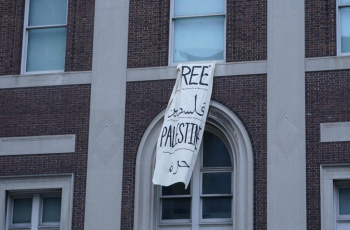
At Columbia University, students weigh in on surrounding protests
2024-05-01 -

US lawmakers accuses oil giants of climate 'doublespeak'
2024-05-01 -
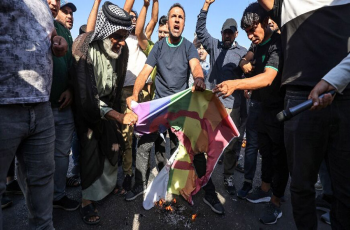
LGBTQ Iraqis fear dark days ahead after anti-gay law
2024-04-30 -
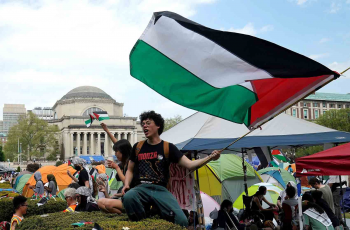
Columbia University suspends students after call to end Gaza camp unheeded
2024-04-30 -
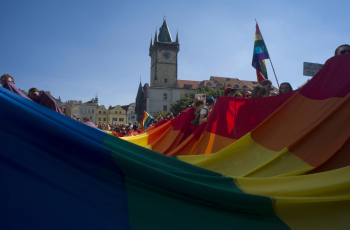
Czechs expand rights for same-sex couples
2024-04-30 -
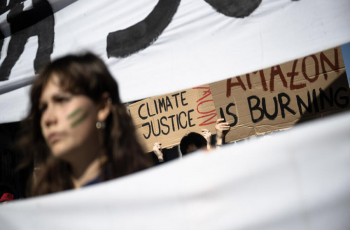
G7 ministers hold 'strategic' talks on climate change in Italy
2024-04-29 -

US Women's NBA star Parker retires
2024-04-29 -

PSG win French football league for 12th time as Monaco lose at Lyon
2024-04-29 -

All-female team referee Serie A match for first time
2024-04-29
